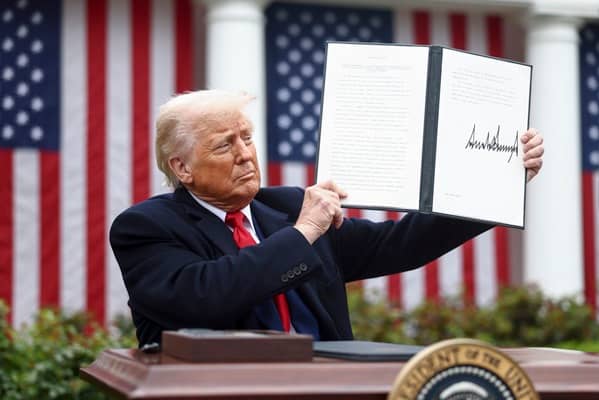When first announced, Trump’s tariffs rocked global markets and supply chains, and by extension, individual’s investment portfolios and pension pots.
This caused mass concern over people’s personal finances and how their portfolios would recover.
While there was some level of reprieve and recovery during the 90-day pause on country-specific taxes on US imports, the deadline is soon to expire – now confirmed for 1st August 2025, extended from the original date of Wednesday 9th July.
Research from Charles Stanley Direct looked into the effect Trump’s tariffs first had on DIY investors’ portfolios.
With the date tariffs are due to come back into effect, investors are encouraged to engage with advisers on their best course of action.
Nearly half of DIY investors (48%) said their investments dropped in value and 57% of Baby Boomers have had their investments drop in value, compared to 43% of Gen Z, 47% of Millennials and 49% of Gen X.
Some 46% of those who take financial advice have had their investments drop in value, compared to 50% of people who don’t take financial advice and 32% of DIY investors said they had their pensions drop in value.
This was true for 36% of women compared to 29% of men.
35% of Gen Z and Gen X DIY investors, respectively, say their pension dropped in value. This compares to 32% of millennials who say the same about their pension, and 26% of baby boomers.
30% have been anxious/worried about the market, whilst 27% of men have been anxious or worried about the market, compared to 33% of women.
Millennials are the most anxious generation, with 32% worried about the market. This is followed by Gen X (30%), and Gen X (29%) and on average, DIY investors think it will take 5.8 months for the finances to recover from the impact of Trump’s tariff announcement.
Rob Morgan, Chief Investment Analyst at Charles Stanley Direct, said, “With universal tariffs paused once again, this allows an additional grace period for investors to ensure their portfolios are in the best place possible as tariffs come back into effect. However, there will be questions around how many individual trade deals can be struck by the next deadline day on 1st August, and if this reprieve will be the last.
“From an investor’s perspective, it’s especially important to be cautious in the lead up to August, and ensure portfolios are suitably diversified to weather choppy seas. Our research shows that a large cohort of DIY investors were not simply looking to sell-up or ride out the wave, but saw the market turmoil as an opportunity to seek discounts and reposition their investments. Agile reactions to market-altering events can sometimes help to stem losses or maximise returns, though it does come with risk. That said, it’s crucial that investors stay as well informed as they can before making decisions with their capital and seek necessary advice should they need.”








